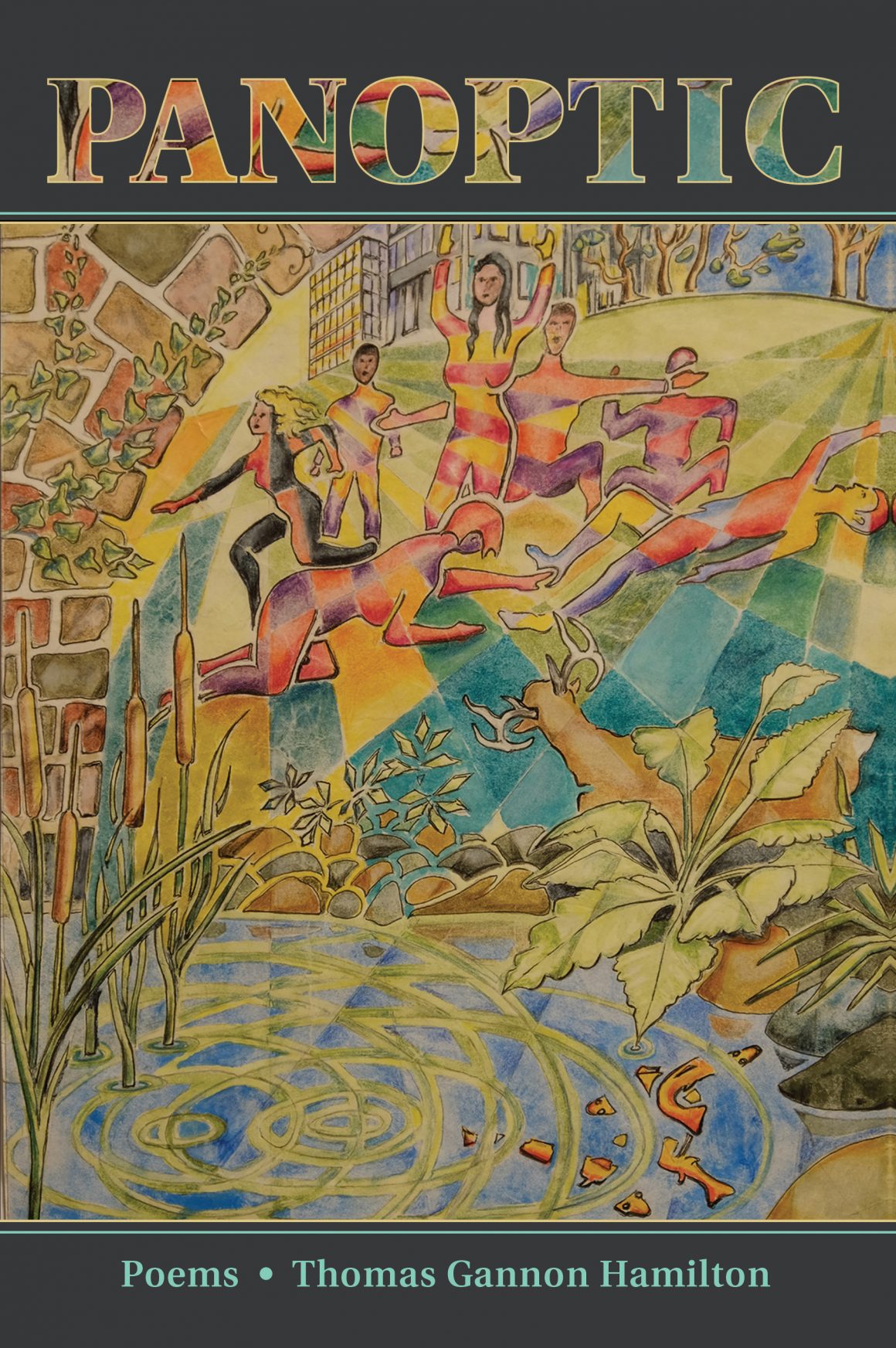
Triple U of C graduate releases second book of poetry
By Kristy Koehler, November 23 2018 –
Thomas Gannon Hamilton is a poet, artist and musician. A triple graduate of the University of Calgary, Hamilton studied anthropology and archaeology in his undergraduate degree, going on to earn an MA and PhD while incorporating the study of poetry into all of his degrees.
Hamilton was awarded first prize in the 2018 Big Pond Rumours Chapbook contest for his work of poetry, El Marillo, detailing his humanitarian efforts in El Salvador. His latest work, a collection of poetry titled Panoptic, was published this past summer. Hamilton is currently on tour, bringing his poetry readings to cities across the country.
Though no stranger to other forms of writing, Hamilton has an affinity for poetry that runs deep.
“Poetry is the mortar that holds all the bricks together,” he says. “There’s political engagement, there’s deep interpersonal love and romance. In poetry you really are in a position to incorporate anything for which you have a passion or an interest — some basic inquiry or curiosity is there. What is more curious than surprising yourself with how you feel?”
Panoptic’s format is interesting, as it forgoes photos and illustrations in favor of what Hamilton refers to as “embellishments.”
“I wanted to add these motifs, these visual elements that harken back to the sensual experience of reading in the 19th century,” he says. “It didn’t need to be illustration, it could just be something that I call a visual palate cleanser.”
Why not illustrations? With each poem designed to stand on its own, imagery from one poem shouldn’t carry over to the next, he says.
Panoptic follows a sort of chronology, from birth to childhood, from life to death. But the poems weren’t necessarily written that way. Hamilton sees himself more as an arranger, a collector of experiences that are later arranged into an anthology.
“I’m in the compositional mode — one is gathering, or sampling or collecting and one is arranging, structuring, performing,” he says. “The compositional state is a way of being. The senses are operating in a way all of the time. Everything that’s experienced is grist for the mill.”
He is fond of letting the poems speak for themselves, choosing not to impose a certain form, but instead, letting them take whichever form is best suited to their natural rhythms.
“There’s a breathing, a regular pulse, a respiration of the poem. I don’t superimpose a form,” Hamilton says. “The longer line tends to be more suited to what I have to say. It’s stanzaic. The poems themselves have micro rhythms in them. I discover the rhythms in them far advanced in the writing, when it suggests what it is going to be stanzaically.”
Hamilton says his time at U of C influenced his poetry as much as his poetry was influenced by his studies. He cites professor William McCormack, now professor emeritus of archaeology and anthropology, as a huge influence on his time here.
“He was an extraordinarily patient and enlightening professor,” Hamilton says. “I was given the encouragement to travel and do more cross-cultural work. It was tremendously exhilarating.”
Hamilton’s eventual PhD in education was driven by his own disillusionment with the school system. Growing up in an artistic home, where art was a daily part of life — his mother was an artist and a student of the Group of Seven’s Arthur Lismer — Hamilton found school regimented and restrictive.
Despite now residing in Toronto, Hamilton still sees Calgary as home. His connection to the Calgary arts scene runs deep — he was the first person to ever play on the new Jack Singer stage when his band opened for Katrina and the Waves.
“Calgary is a wonderful city,” he said. “There is such a possibility for the interface between the traditional and technical arts. Canadians have to know that and the rest of the world has to be shown that too.”
Hamilton firmly believes that young people today will be the catalyst for change in our society and cites his time in Detroit during the Motown era as helping to mould his views on what happens when people are driven to build a thriving art scene.
“I saw how a community initiative could make an arts based culture and how an arts based culture could completely redefine the social economy and the economy,” he said. “We’re on the cusp of that here.”
Hamilton is passionate about making the world a better place through the healing power of creativity, art and human connection. Urban sprawl, he says, is the enemy of art.
“Ugly places hurt people,” he said. “When you live in a place that’s Joey Tomatoes and Rona and parking lots and stucco pastel nightmares going on, that fucks with your head. This is why we have to talk.
“I’m hungry to make a human connection which is orientated towards bringing something into being that did not previously exist. That’s my reason for being alive.”
